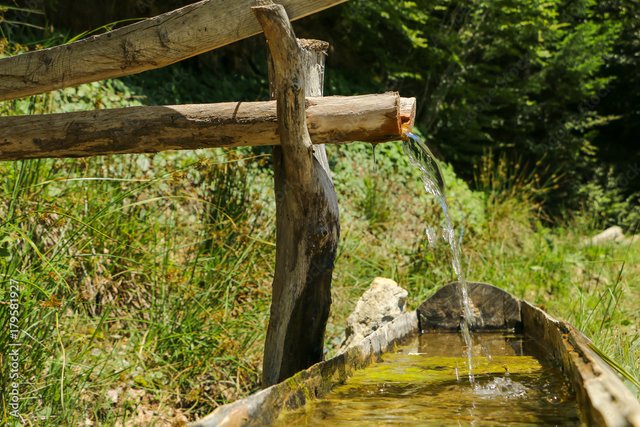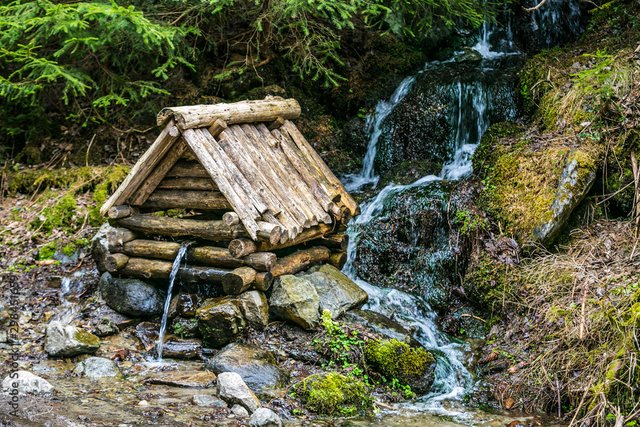Sprng water
Natural spring water is water that flows naturally to the surface from an underground source, usually due to pressure. This type of water is often collected at the point where the spring emerges and is prized for its purity, mineral content, and refreshing taste.
Formation and Characteristics
Formation:
- Geological Process: Natural springs are formed when water from rain or melted snow seeps into the ground, moving through soil and porous rock until it reaches an impermeable layer. The pressure builds, and the water is pushed back to the surface through cracks or openings in the earth.
- Aquifers: These underground layers of water-bearing rock or materials, such as gravel, sand, or clay, store and transmit groundwater to springs.
Characteristics:
- Purity: Spring water is typically filtered naturally through layers of rock, which can remove impurities. However, the purity depends on the geographical area and the natural filtration process.
- Mineral Content: As the water moves through rocks and soil, it dissolves minerals like calcium, magnesium, potassium, and sodium, which can enhance its taste and potential health benefits.
- Temperature: Spring water can vary in temperature. Some springs are cold, while others, known as thermal or hot springs, are heated by geothermal activity.
Benefits
- Hydration: Spring water is an excellent source of hydration, often with a naturally balanced pH and refreshing taste.
- Minerals: The dissolved minerals can contribute to daily mineral intake, supporting overall health. For example, calcium is essential for bone health, while magnesium supports muscle and nerve function.
- Purity: Properly sourced and tested spring water can be free from contaminants and pollutants often found in surface water.
Uses
- Drinking: Many people prefer spring water for drinking due to its taste and perceived health benefits. It's available in bottles or can be collected directly from the source in some regions.
- Bathing: Natural spring water, especially from hot springs, is used for therapeutic baths. The minerals in the water are believed to have various health benefits, including improved skin health and relaxation.
- Beverages and Cooking: Spring water is often used in brewing beverages like beer and tea, and in cooking, where its purity and mineral content can enhance the flavor of the food.
Considerations
- Source Verification: Not all spring water is created equal. It's important to verify the source and ensure it meets safety standards. Some bottled spring water may be subjected to minimal processing, like ozonation or UV treatment, to ensure safety without compromising its natural qualities.
- Environmental Impact: The extraction and bottling of spring water can have environmental impacts, including the depletion of natural sources and plastic waste. Choosing sustainably sourced water and reusable bottles can mitigate some of these issues.
Natural spring water offers a refreshing, mineral-rich alternative to other types of drinking water, celebrated for its purity and health benefits. Whether consumed directly, used in beverages, or enjoyed in therapeutic baths, it remains a treasured natural resource.


Congratulations, your post has been upvoted by @upex with a 0.68% upvote. We invite you to continue producing quality content and join our Discord community here. Visit https://botsteem.com to utilize usefull and productive automations #bottosteem #upex